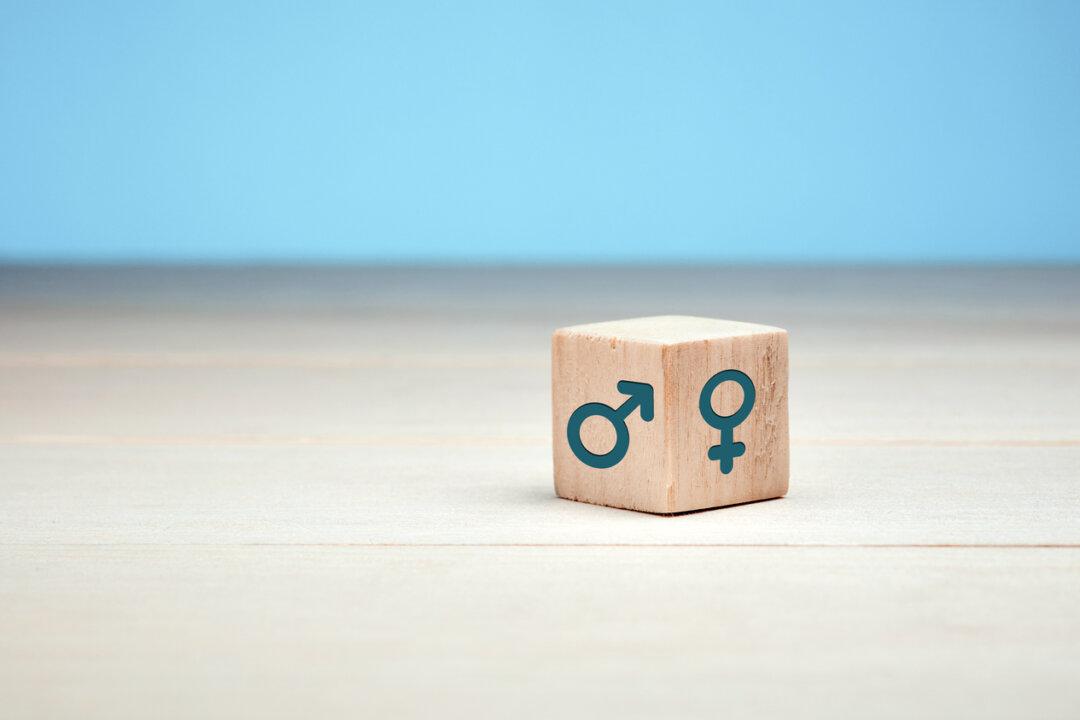Warren Farrell, the co-author of “The Boy Crisis,” recently wrote an op-ed criticizing the 57th Super Bowl. Or, as he called it, the “Supersexist Bowl.” The event, which was watched by 113 million Americans, was littered with a number of sexist ads, according to Farrell. To be more specific, it was littered with anti-male ads. One of the advertisements, for “Friday Night SmackDown,” saw a woman approach a man from behind and assault him with a wooden chair.
A man being beaten to a pulp by a woman—hilarious, right?
Not really. Sadly, in this post-Harvey Weinstein world, it has become perfectly acceptable to ridicule men and compare them to pieces of trash. Some men have had enough. Thoroughly disillusioned with the state of modern-day America, they’re going their own way. Literally.
You’re no doubt familiar with the various waves of feminism. We’re currently living in the fifth iteration of the socio-political movement. According to Mary Retta, a rather outspoken feminist writer, “fifth wave feminism aims to destroy our current systems and build a new world that prioritizes the needs of all marginalized people.” In other words, there’s very little, if any, room for men.
For this reason, among others, meninism is gaining traction. According to Dictionary.com, a supposedly credible website, a meninist “is someone who—wait for it—believes men are victimized by feminism and that attention needs to be called to what they believe are the struggles of being a man in the 21st century.” That definition, heavy on sarcasm, is also loaded with contempt. It also demonstrates why a male-oriented movement is needed. Enter Men Going Their Own Way (MGTOW), an all-male, largely online community that believes we live in a gynocentric world.
According to the researcher Sebastian Gygax (pdf), the “first central concept within MGTOW is that society is increasingly gynocentric.”
“The successful institutionalization of feminist ideals in wider society,” he notes, “has created a situation in which women are privileged and rewarded, and men rendered expendable and inherently dangerous.”
When a major institution such as the American Psychological Association (APA) demonizes masculinity, prominent writers call all men dangerous, and elite universities turn their backs on young men, it’s difficult to argue with MGTOW sentiments.
Difficult, but not impossible.
Last year, three Polish professors published a paper arguing that these men are not, in fact, going their own way. Instead, they’re simply pretending to go their own way. One of the authors of the paper, Anna Maria Górska, told me that the official narrative of the MGTOW movement is a sham. Górska and her colleagues found that, despite the widespread narrative of men “going their own way,” MGTOW members’ “communications are predominantly focused on attacking women, which contradicts the movement’s official values.”
The MGTOW movement, Górska told me, started two decades ago, mainly as “an offshoot of the broader Men’s Rights Movement (MRM) and is part of the ‘manosphere.’” The Manosphere, she suggested, is nothing more than “the digital manifestation of men’s rights activism, and the men’s liberation movement, both of which are rooted in misogyny.” This, however, doesn’t appear to be true.
According to the activist and writer Sean Galla, men’s rights movements, which gained traction in the 1980s, were created to champion men’s rights “without being socially conservative or anti-feminist.” These men focused on important issues such as “child custody, child support obligations, alimony, female-on-male domestic violence, negative masculinity, and draft requirements.”
MGTOW and other men’s groups, according to Górska, a self-declared feminist, are united by their members’ willingness to embrace “male victimhood” and “antifeminism,” as well as “a refusal to believe in gender inequality.” MGTOW, she said, “is deeply set in patriarchal and sexist ideology that aims to preserve a patriarchal system of dominance and entitlement.”
As someone who has studied and written about disillusioned, loveless men in great detail, I feel compelled to point out an important fact: MGTOW is not a homogeneous block; the group consists of men with differing views and diverse opinions. Are some members hateful, even dangerous? Of course (pdf). Are all members hateful and dangerous? No.
According to Górska, MGTOW is now one of the fastest-growing online “meninist” communities on the internet. According to one study published in 2020, the subreddit r/MGTOW grew from 54,000 members in early 2018 to 104,000 members in early 2019.
However, as Górska noted, “It is difficult to determine the exact number of MGTOW members as the movement is primarily an online community without official membership or leadership structures.”
She believes that it’s entirely possible that the MGTOW movement will continue to grow in size and influence, “as more men become frustrated with feminist movements that pose a risk to their entitlement.”
The word “entitlement” is particularly interesting. In 2023, what does this word even mean? Of course, one could substitute “ego” for “entitlement,” and the sentence would read similarly. Many MGTOW members may feel entitled—to what exactly, I’m not sure—but all of them feel utterly disgusted by the state of the intersexual dynamics. Some members choose to voice their disgust in disgusting ways. Again, some, but not all.
Alex DatePsych, a behavioral expert, told me the MGTOW movement “is part of a broader trend in poor gender relations between men and women.”
What would have been called the “battle of the sexes” just a few decades ago has morphed into something even more hostile, said Alex, a man who has, rather wisely, considering the divisive times we now live in, opted to keep his real surname private.
“There are large ideological communities of men and women now that have a lot of hostility toward one another,” he noted. “MGTOW seems to be one of those.”
He’s right. The hostility goes both ways. Men don’t have a monopoly on hateful rhetoric. Large numbers of female-led, online groups now populate the web, and many members direct their hatred toward men. What we’re witnessing is a fundamental breakdown in communication and trust, with members of both sexes lobbing verbal grenades at each other. Internecine warfare. Nothing more, and nothing less.
Alex is particularly concerned by the idea of younger men getting into MGTOW, “as early adult romantic relationship formation is a crucial part of development.” If a man in his 20s devotes his time to MGTOW-like groups instead of attempting to navigate the tricky world of romance, then he may “develop some ideological dislike of women, that may make dating even harder for them in the long run.”
For any men reading this and planning to “go their own way,” take a second to ask yourself the following: Where will I go, exactly? Do I really want to go there? Men and women complement each other. We aren’t enemies. We’re allies. Or at least we used to be.





